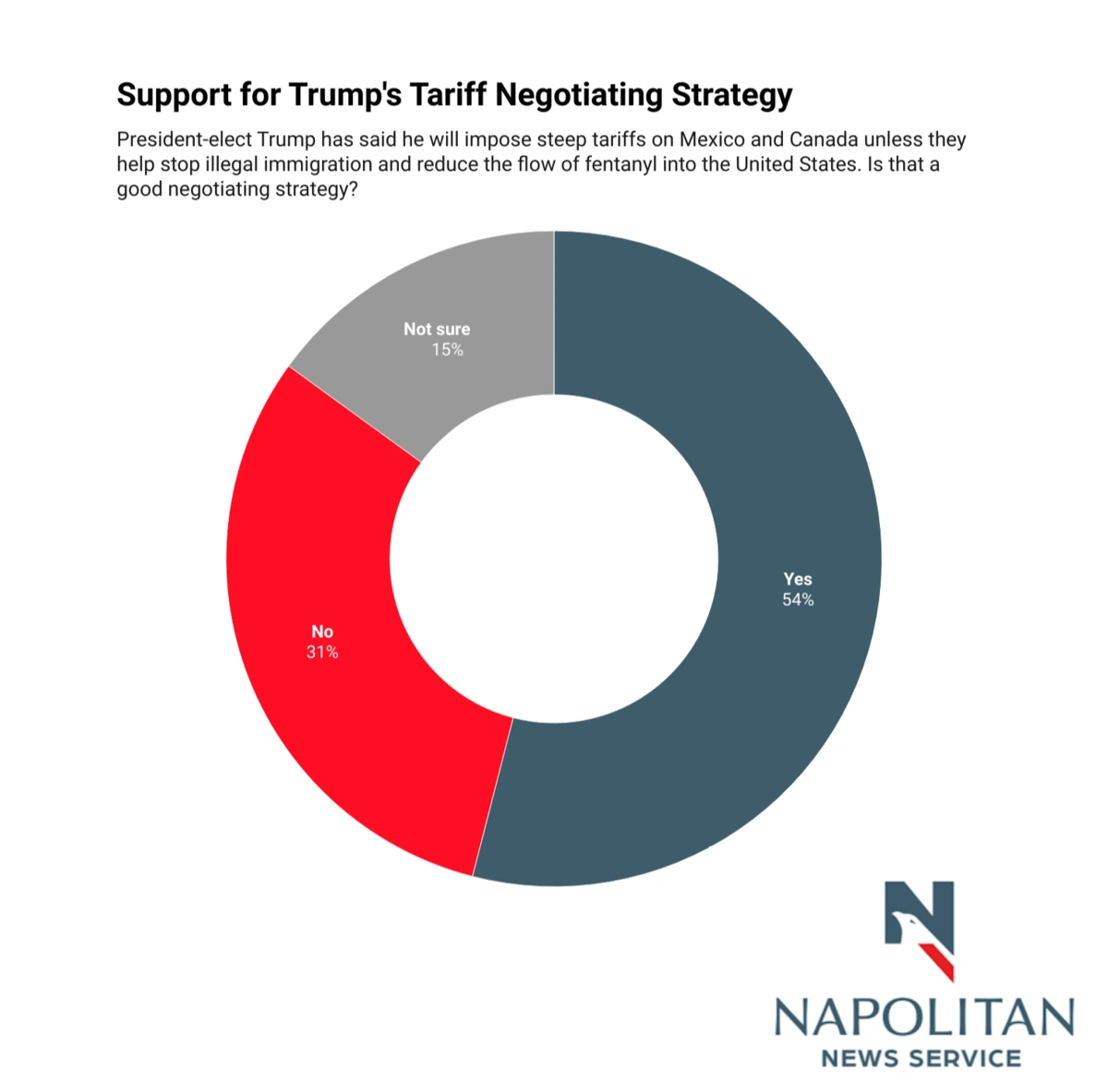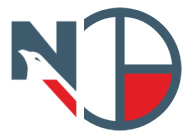Fifty-four percent (54%) of voters believe that threatening steep tariffs on Mexico and Canada is a good negotiating strategy to help stop illegal immigration and reduce the flow of fentanyl into the United States. A Napolitan News Service survey found that 31% disagree with the President-elect's approach.
Support for this approach is found despite the fact that only 37% of voters believe it would be good for the US economy. However, an even larger number (57%) believe it would be bad for the economies of Canada and Mexico. Voters overwhelmingly believe that the economies of Mexico and Canada are already weaker than the U.S. economy. This suggests that voters think the threat of tariffs pose an even greater danger to our neighbors than it does to our country. That logic, if accurate, puts the U.S. is a much stronger negotiating position.
Not surprisingly, most voters (52%) think Trump's strategy is likely to work. They think it will get our neighbors to help stop illegal immigration and reduce the flow of fentanyl into the United States. Twelve percent (12%) of voters believe that tariffs are bad for the economy but also believe Trump's policy would be effective.
Recent media surveys have focused on the perceived negative economic impacts of tariffs to suggest that Trump's policy approach is unpopular. The Napolitan News survey confirms these findings on a purely economic basis. But the President-elect clearly tied the tariff threats to his negotiations on other important national security issues. Most voters applaud that approach, perhaps recognizing it is a tactic a New York estate developer might try.
Interestingly, just 29% of Democrats support this strategy but 38% think that that it's likely to work. The dynamic is different among Republicans. Eighty-six percent (86%) of Republicans think that it's a good strategy, but a smaller number (70%) think it's likely to work.
Sixty-six percent (66%) of voters understand what tariffs are, a high level of awareness compared to other terms used in the political dialogue.

The Napolitan News Service surveys of 1,000 Registered Voters was conducted online by Scott Rasmussen December 2-3. Field work for the survey was conducted by RMG Research, Inc. and has a margin of error of +/- 3.1.


